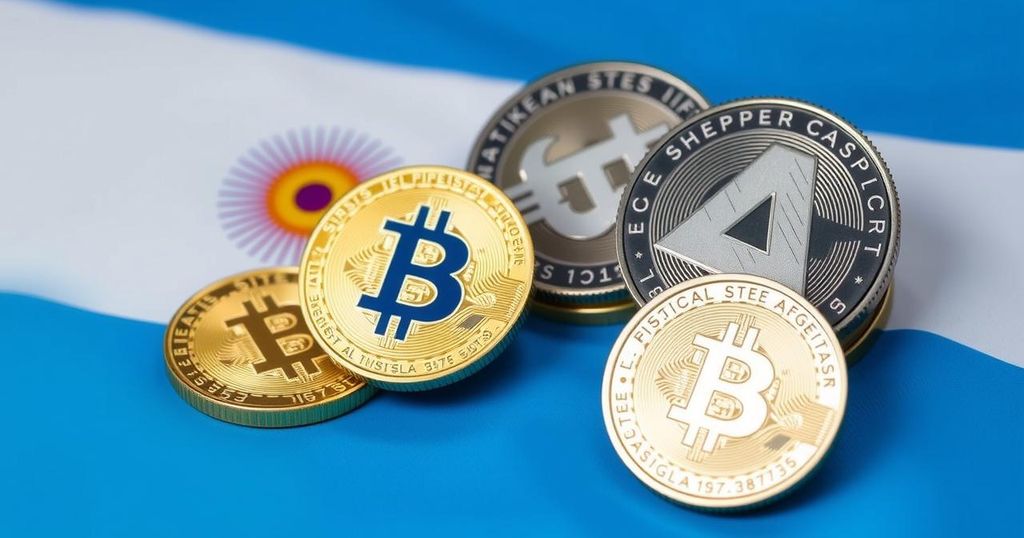Latam Insights: El Salvador’s Bitcoin Pursuit, Argentina’s USDT Freeze, and Brazil’s CBDC Debate

This week’s Latam Insights highlights El Salvador’s continued Bitcoin acquisitions amid IMF scrutiny, Argentina’s historic asset freeze on USDT linked to fraud, and Brazilian Congresswoman Julia Zanatta’s concerns over a potential cash elimination with the introduction of a CBDC.
In this edition of Latam Insights, significant developments have emerged from El Salvador, Argentina, and Brazil concerning cryptocurrency and digital finance. El Salvador has determined to persist with its Bitcoin acquisitions despite the International Monetary Fund’s (IMF) urging to moderate its bitcoin approach. Concurrently, Argentina has executed a historic asset freeze on USDT linked to a fraudulent scheme, and Brazilian Congresswoman Julia Zanatta has raised concerns regarding the risks associated with the upcoming central bank digital currency (CBDC).
On Christmas Day, El Salvador’s Bitcoin Office confirmed that they would continue acquiring bitcoin at an accelerated rate, following an agreement with the IMF that advised a more reserved approach to their cryptocurrency initiatives. On December 20, in a celebratory tone, the office reported a new purchase of 12 BTC, which was promptly followed by daily acquisitions, showcasing an unwavering commitment to building their bitcoin reserve.
Meanwhile, Argentine authorities took decisive action against a suspected pyramid scheme named Rainbowex by ordering Tether to freeze $3.5 million in USDT assets. This unprecedented move marks a notable intersection of the conventional justice system with cryptocurrency regulations and highlights the ongoing commitment of Argentine law enforcement to combat financial fraud effectively.
In Brazil, Congresswoman Julia Zanatta expressed grave concerns regarding a proposed bill that could phase out cash in favor of electronic transactions, specifically, the newly proposed CBDC referred to as drex. She underscored the potential socio-economic implications of such a transition while advocating for a system where the utilization of drex remains a personal choice rather than a compulsion. The congresswoman is poised to protect the financial autonomy of her constituents and has proposed measures to thwart the elimination of cash.
As developments unfold in Latin America’s cryptocurrency landscape, El Salvador’s aggressive Bitcoin acquisition strategy, Argentina’s enforceable legal actions against fraudulent schemes, and Brazil’s debates around the future of currency highlight intricate dynamics within financial systems in the region.
The Latin American region has experienced a surge in cryptocurrency adoption, with varied degrees of regulation and governmental responses. El Salvador notably became the first country in the world to recognize Bitcoin as legal tender. Meanwhile, Argentina and Brazil are grappling with regulatory challenges and public concerns on the implications of digital currencies. The integration of cryptocurrencies and CBDCs signifies a transformative phase for economic frameworks, highlighting the need for legislation that safeguards consumers while promoting innovation.
In summary, the crypto landscape in Latin America is in a state of dynamic evolution. El Salvador’s resolute approach to Bitcoin acquisition exemplifies its commitment to the cryptocurrency sector, despite international advice to exercise caution. Argentina’s successful asset freeze against a fraudulent entity highlights increasing governmental assertiveness, while Brazil’s debate over the future of cash underscores the complexity surrounding digital currencies in societal contexts. Collectively, these developments reveal a profound transition within the region’s financial frameworks.
Original Source: news.bitcoin.com








